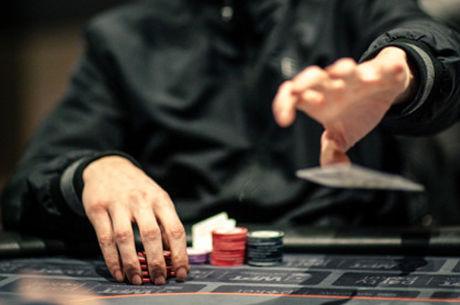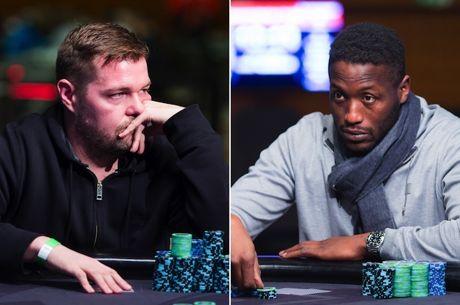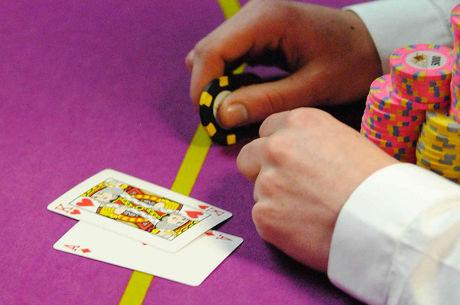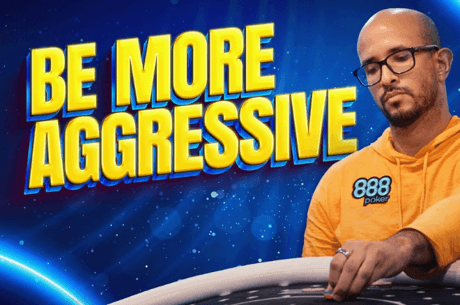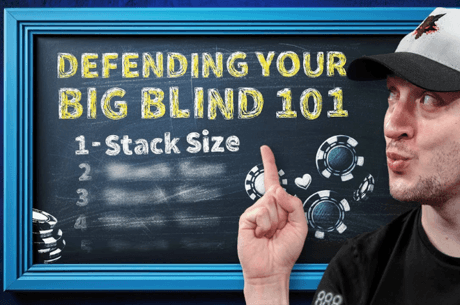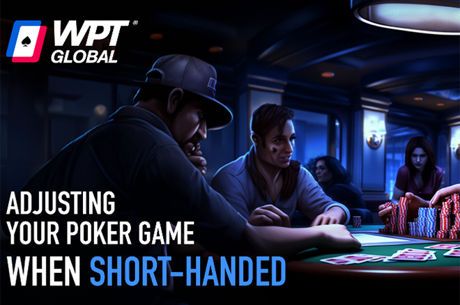You Don't Have to Call: Eight Examples of Calls You Don't Have to Make
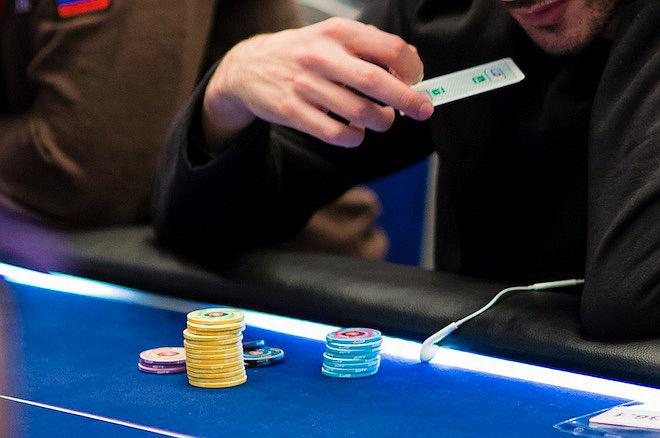
It's a refrain often heard in typical $1/$2, $1/$3, and $2/$5 no-limit hold'em games: "I had to call!" The line is most often uttered by less-skilled players as justification for their losing action. And it costs them a lot of money.
The truth is, of course, that they really didn't have to call. They chose to call instead of folding or raising. But in their mind, because of the circumstances, they didn't think they really had a choice.
Here are eight examples of calls you don't have to make, though in each case you might be tempted to do so.
1. You know someone is bluffing
It's tempting. After the flop your loose and wild opponent has position on you. You check and he makes a large bet. No one else is in the hand.
You don't have a hand, but you can't let him get away with what you know is a steal. You can't let him do it, not when you know he's bluffing.
There are still two cards to come. Maybe you can call with air and then come out betting the turn and get him to fold? Yeah... maybe. But folding is almost surely the better option.
Wait until you have at least a little something in your hand or until you have position on him. In any event, you don't have to call just because he's bluffing.
2. You finally have a decent hand after a long dry spell
You've been playing for a few hours and have missed every flop and been outdrawn numerous times. It's been over an hour since you're seen any decent cards. You're dealt A♠J♥.
"Finally, a decent starting hand," you think. You're in late position and are thinking of raising the blinds, but a couple of players beat you to it. The player under the gun raised to $12, then another player has three-bet to $35. A third player flats the $35 and the action reaches you.
You're thinking that you have to call — after all, this is the first decent hand you've seen in a long while. Don't do it. Fold.
It doesn't matter how long it has been since you've had good starting cards, in this situation you're almost certainly behind. Among the three players already in, it is likely at least one player has you hugely dominated with a bigger ace or a big pair. How will you play the flop if an ace or paint hits? You'll probably end up felted.
Get out of the way. You don't have to call.
3. You had to protect your blind
You're the big blind in a $2/$5 game. You post your $5. Everyone folds around to the button who raises to $15. The small blind folds and the action moves to you.
You look down and see Q♠6♦. You think the button is just trying to steal your blinds. You won't be bullied out of your blind. And besides, it's only another $10 to call — a call you feel you have to make.
Don't call. You have a trash hand. Even though you're suspicions about the button may well be correct, you really have no hand, no draw, and will be out of position for the rest of the hand. Give up your blind. You don't have to call!
4. You've already called a raise and are reraised
The UTG player raises to $10 and you call from a couple of seats over with A♥10♥. Everyone folds to the cutoff, a relatively straightforward player, who raises to $40. He has another $200 behind as do you. Everyone else folds, including UTG.
You think that you're already in for $10, have a decent hand, and really must call. You don't have to call.
Think about what kind of player the cutoff is. Think about your position. Sure, your Ax10x-suited is a nice hand in the abstract. Your call of the initial raiser made sense. But now you have bad position against someone who is probably ahead. True, he might be squeezing you. But unless you can find a really good reason to call here, a fold is in order.
5. You are check-raised
You're on the button. It's the river. You have 10♠10♣ and have been betting all the way. First you raised to $10 preflop and got three callers. Bet $25 on the A♠9♣4♦ and one opponent stuck around. Then, when the turn brought the 9♠, you bet $50 and were called again.
The river brings the 8♣, making the board A♠9♣4♦9♠8♣. Your opponent checked and you made a bet of $75. This time your opponent check-raises you to $225. You have just over $150 left behind, meaning it will require just about all of it to call.
You figure that since you still have some kind of a hand you have to call the check-raise. But you don't. You should almost surely fold. Indeed (you now realize), you probably shouldn't have even bet the river. With what hand would your opponent have called you?
But you did bet, and now your opponent has raised. Save your money. You don't have to call.
6. You're the small blind in an unraised pot with many callers
Three players have called the $2 big blind in your $1/$2 NLHE game, and the action is to you. You have a trash hand of J♠2♣. You think you have to call since it's only $1 more. Such great implied odds! If there's some miracle flop you could win a ton, you think. It's just a buck!
You don't have to call. You should probably fold. True, it's only $1 more against four players. And it's also true that with a perfect flop like JxJx2x you'd almost surely win. But even so, it's probably not worth another buck. Not only is such a flop unlikely, but even if it comes you're unlikely to win a whole lot, anyway. What kind of a hand is going to spend a lot of money with a board like that?
Sure, there are reasons you might want to call. You might not want to further a really tight image. You might want to encourage a general looseness and playfulness in the game. But those $1 bets add up over time. Even here, you can give yourself permission to fold.
7. You're on the button and a lot of people have called the big blind
This situation and decision is a corollary to the above. You don't have to call just because everyone or nearly everyone else is in. If you have a trash hand, the fact that theoretically you are getting great implied odds is not in and of itself a reason to go along with the crowd. You can save yourself $2 when you have an awful hand.
This isn't the same as folding borderline starting hands like connected or suited cards. In a loose-passive game, from the button, you often should call with hands with KxXx-suited and 10x9x-offsuit. But save some money by tossing hands worse than that.
8. You can call for less because you'll be going all in with a short stack
It's tempting to think that you're getting great pot odds with a large pot and a short stack. But you still don't have to call.
Imagine three of you reach the river. The pot is $500. One opponent bets $300 and your other opponent folds. You only have $100 left. You're getting roughly 6-to-1 odds on your call. You have a mediocre hand, one that is very likely beaten here, but think you're getting a great price so you have to call. You don't.
It's true that you're getting a much better price than if you had to call the full $300. But it's not an infinite price. It's 6-to-1. Assuming you would only win if your opponent were bluffing, it only makes sense for you to call if there's some decent possibility that you're facing a bluff (i.e., better than a 15 percent chance).
But is your opponent in any way likely to try such a move facing two opponents? Unless you think there's at least some reasonable chance that he would make such a move, you should fold — in spite of the good price you're getting. You don't have to call for $100 more.
Conclusion
To sum up, the point is not that you have to fold in these situations. Often, when you consider all of the factors, a call or even a raise may make sense.
But you don't have to call. It isn't automatic, even if many lower level players might think that it is.
Ashley Adams has been playing poker for 50 years and writing about it since 2000. He is the author of hundreds of articles and two books, Winning 7-Card Stud (Kensington 2003) and Winning No-Limit Hold'em (Lighthouse 2012). He is also the host of poker radio show House of Cards. See www.houseofcardsradio.com for broadcast times, stations, and podcasts.

